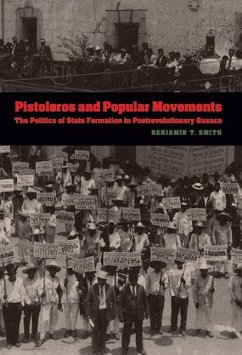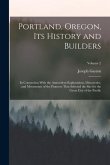The postrevolutionary reconstruction of the Mexican government did not easily or immediately reach all corners of the country. At every level, political intermediaries negotiated, resisted, appropriated, or ignored the dictates of the central government. National policy reverberated through Mexico's local and political networks in countless different ways and resulted in a myriad of regional arrangements. It is this process of diffusion, politicking, and conflict that Benjamin T. Smith examines in Pistoleros and Popular Movements. Oaxaca's urban social movements and the tension between federal, state, and local governments illuminate the multivalent contradictions, fragmentations, and crises of the state-building effort at the regional level. A better understanding of these local transformations yields a more realistic overall view of the national project of state building. Smith places Oaxaca within this larger framework of postrevolutionary Mexico by comparing the region to other states and linking local politics to state and national developments. Drawing on an impressive range of regional case studies, this volume is a comprehensive and engaging study of postrevolutionary Oaxaca's role in the formation of modern Mexico.
Hinweis: Dieser Artikel kann nur an eine deutsche Lieferadresse ausgeliefert werden.
Hinweis: Dieser Artikel kann nur an eine deutsche Lieferadresse ausgeliefert werden.





![Infantry Drill, 1896 [microform]: Field and Brigade Movements and Infantry in Attack: Instructions and Remarks for Use in the Camps of Instruction, Ca Infantry Drill, 1896 [microform]: Field and Brigade Movements and Infantry in Attack: Instructions and Remarks for Use in the Camps of Instruction, Ca](https://bilder.buecher.de/produkte/66/66130/66130499m.jpg)


